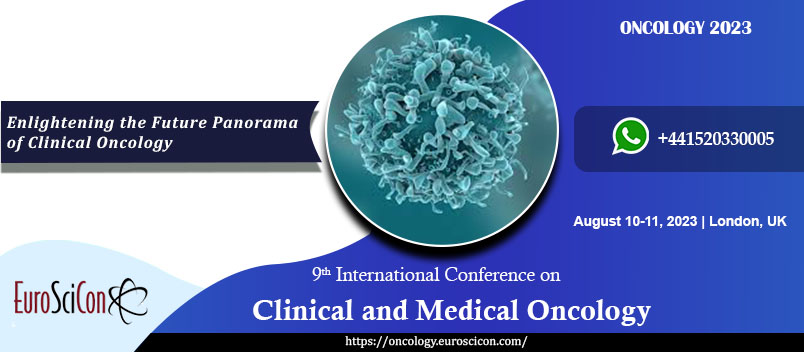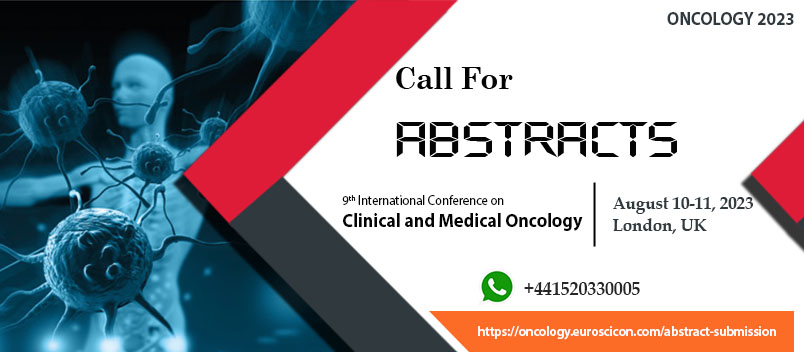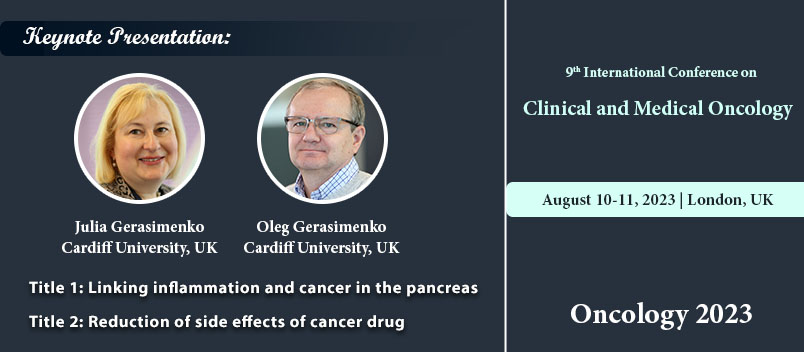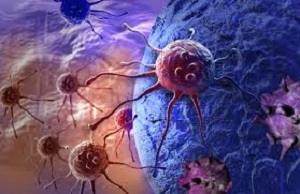ONCOLOGY 2023
ABOUT CONFERENCE
We are glad to announce the 9th International Conference on Clinical and Medical Oncology (Oncology 2023) organized in collaboration with generous support and cooperation from enthusiastic academicians and Editorial Board Members scheduled on August 10-11, 2023 in London, UK.
Oncology 2023 aims at sharing new ideas and technologies amongst the professionals, industrialists and students from research areas of Oncology and Cancer. As the premier event, we have developed a program with your interests in mind. We have not only increased the number of opportunities for you to network with colleagues from across the world but also introduced more focused sessions that will feature cutting-edge presentations, special panel discussions, and livelier interaction with industry leaders and experts.
Oncology 2023 invites all the participants from all over the world which includes prompt Keynote talks, Oral talks, Poster presentations, Sponsor Ships and Exhibitions. The aim of this conference is “Enlightening the Future Panorama of Clinical Oncology”.
Oncology Conferences 1000+ CME Global events every year across the globe with support from 1000+ more scientific societies and Publishes 500 Open access journals which contains over 50000 eminent personalities, reputed scientists as editorial board members.
Who Should Attend??
Oncology 2023 conference is a novel discussion to unite overall recognized scholastic Researchers, Public wellbeing experts, Scientists, Doctors, Academic researchers, Industry specialists, Scholars in the field of Oncology, Hematology, Surgery, Nursing, Radiology, Pediatric, Physicians, Advocacy, etc., to exchange about the state of the Research and Development.
Target Audience:
- Doctors
- Oncologists
- Directors
- Cancer Surgeons
- Physicians
- Oncology Nurses & Nurse Practitioners
- Oncology Associations and Societies
- Business Professionals
- Medical colleges and universities
- Professors
- Researchers & Scientists
- Anesthesiologists
- Medicine Experts
- Manufacturing Nano Medical Devices Companies
- Students
Why Should Attend??
The arranging group assembles eminent speakers covering the most recent advances in the field, fusing differing qualities in each sense. We likewise incorporate talks on most recent methodologies for concentrating these biological inquiries.
Exclusive B2B meetings, Interactive Sessions, Panel Discussions, Keynote Sessions, Poster Presentations, Oral Presentations, Workshops, Exhibitions etc., are the main highlights of this event.
Benefits of PHYSICAL EVENT:
- International Speaker Certification
- Hard copy of Conference Souvenir, ID card and certificate will be sent to your address
- All accepted abstracts will be published in the supported journals and Conference Book Proceeding.
- Opportunity to conduct Workshop with your team members
- Networking with Keynote Speakers, OCM and Eminent personalities for the future course of work.
- Opportunity to chair a session.
- Individual Speaker Page will be created to get more visibility for your scientific research.
- Huge Benefits on Group Registration and much more.
Scope & Importance:
Oncology 2023 and Oncology Conference will seam world-class educators, scientists and Oncologists to converse diverse procedures for Cancer treatment, Chemotherapy, and Radiology.
Oncology 2023 will be the best platform for all the oncologists, hematologists, research scholars, students who are working in this field to exchange their knowledge related to Oncology Research. This international event is an effort to understand the underlying biological procedures which are amended to increase effectiveness, precision, survivability and quality of life.
Overview of Oncology 2023:
The Innovative idea of Cancer has started great much research to be embraced by the labs around the world. With such an extraordinary number of researchers and scientists taking a shot at Caner research, to date, no significant solution for this is recorded. Oncology 2023 will manage Cancer Prevention, Diagnosis, and Treatment of illnesses of the Organ-related Cancers and its inventive strategies. Oncology 2023 will also supply the two days of discussions on methods and systems identified with administration and satisfactory exchange of Cancer and in addition to check out the new thoughts and ideas on worldwide scale and the themes include Cancer And Its Relevance With Other Diseases, Advances In Cancer Research And Treatment, Cancer Causes And Risk Factors, Cancer Prevention Vaccines, Medical Imaging For Cancer, Cancer R&D Market Analysis, Cancer Screening & Diagnosis, Oncolytic Virus And Cancer, Cancer Nutrition And Metabolism, MicroRNA And Cancer, Managing Cancer Care & Patient Support, Radiology And Imaging Technologies, DNA Damage, Mutation And Cancer, Clinical And Medical Case Reports, Cancer Pathology And Genetics, Surgical And Clinical Oncology, Cancer Nanotechnology, Organ Specific Cancer, Cancer Epidemiology and SNP And Cancer.
SESSIONS & TRACKS
Track-1: Cancer Developmental Biology
Cell division could be a traditional method utilized by the body for growth and repair. Healthy cells stop dividing once there's not a requirement for additional female offspring cells; however cancer cells still turn out copies. Cancer cells square measure cells that divide unrelentingly, forming solid tumours or flooding the blood with abnormal cells. Cancer biology deals with these changes and also the molecular networks that management cell proliferation, differentiation and death. The study of varied styles of cancer is termed as medical specialty.
Track 1-2Regenerative cell biology
Track 1-3Host-pathogen interactions
Track-2: Clinical Oncology and Medical Case Reports
Clinical oncologists are doctors who treat patients with a balance of radiotherapy and chemotherapy. They are involved in the management of all types of cancer and use a range of other treatments to treat cancers, without using surgery.
They are different than medical oncologists, who use non-radiological treatments for cancer. Clinical oncologists determine which treatment to use by considering a range of factors such as the type of tumour, tumour site, the stage of the disease and the patient’s general health. They assess the relative merits of different treatments before presenting these to the patient.
A case study is a research method involving an up-close, in-depth, and detailed examination of a concerned case (subject/topic), as well as its related contextual conditions. Case studies can be produced by a formal research method followed by an individual, organization, event, or action, existing in a specific time and place. Here we are inviting case studies based on any types of cancer or related incidents or events with facts and figures. Presenting your studies on any other type of cancer in this category will privilege you with a 30% discount on registration.
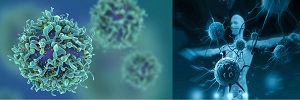
Track 2-2Identifying Risk Factors
Track 2-3Cancer Biologic Factors
Track-3: Oncologic Emergencies in variety of subspecialties
The 3 major specialties of oncology are:
- Medical oncology
- Surgical oncology
- Radiation oncology
There are several sub-specialties in the field of Oncology. The above mentioned specialties deal with the treatment of cancer through Chemotherapy or Immunotherapy, Biopsies and Radiology respectively.
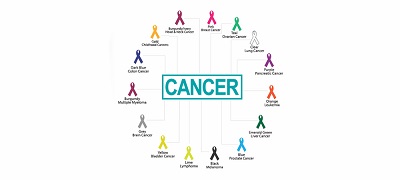
Track 3-6Gastrointestinal oncology
Track 3-7Bone & Musculoskeletal oncology
Track 3-8Dermatological oncology
Track 3-9Genitourinary oncology
Track 3-10Adolescent and young adult (AYA) oncology
Track 3-14Nuclear medicine oncology
Track 3-17Computational Oncology
Track-4: Nucleic acids damage, Mutation and Cancer
DNA is the repository of genetic information in each living cell, its integrity and stability is essential to life. DNA, however, is not inert; rather, it is a chemical entity subject to assault from the environment, and any resulting damage, if not repaired, will lead to mutation and possibly disease.
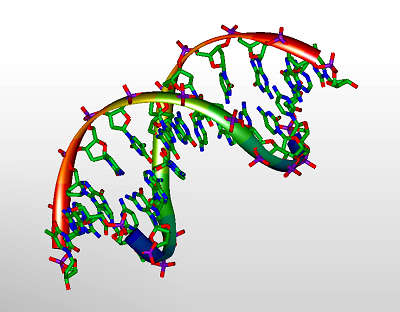
Track 4-1DNA damage and repair
Track 4-4Induced Mutagenesis in Cancer
Track 4-5Nuclear and Chromatin Dynamics
Track 4-7Circulating Tumour DNA Analysis
Track-5: Cell signalling and regulation- Neurology
In biology, cell signaling is part of any communication process that governs basic activities of cells and coordinates multiple-cell actions. The ability of cells to perceive and correctly respond to their microenvironment is the basis of development, tissue repair, and immunity, as well as normal tissue homeostasis. Errors in signaling interactions and cellular information processing may cause diseases such as cancer, autoimmunity, and diabetes. By understanding cell signaling, clinicians may treat diseases more effectively and, theoretically, researchers may develop artificial tissues.
All cells receive and respond to signals from their surroundings. This is accomplished by a variety of signal molecules that are secreted or expressed on the surface of one cell and bind to a receptor expressed by the other cells, thereby integrating and coordinating the function of the many individual cells that make up organisms. Each cell is programmed to respond to specific extracellular signal molecules. Extracellular signaling usually entails the following steps:
- Synthesis and release of the signaling molecule by the signaling cell.
- Transport of the signal to the target cell.
- Binding of the signal by a specific receptor leading to its activation.
- Initiation of signal-transduction pathways.

Track 5-3Signal transduction in cancer
Track 5-5Cancer: Redox signalling
Track-6: Cancer Immunology and Immunotherapy
Cancer immunology is a stream of immunology that studies communications between the immune system and cancer cells (also called tumors or malignancies). It is a field of research that intent to discover cancer immunotherapies to treat and decelerate evolution of the disease. The human immune system mounts natural endogenous response to foreign cells. The gamut of genetics and epigenetics changes occurring in tumors provides diverse set of antigenic repertoire that host’s immune system can exploit to distinguish tumour versus their normal healthy counterparts.

Track 6-1Cancer Antigens & Vaccines
Track 6-3Clinical Cancer immunology
Track 6-4Cellular Immunotherapy
Track-7: Oncolytic Virus And Cancer
An oncolytic virus is a virus that preferentially infects and kills cancer cells. As the infected cancer cells are destroyed by oncolysis, they release new infectious virus particles or virions to help destroy the remaining tumour. Oncolytic viruses are thought not only to cause direct destruction of the tumour cells, but also to stimulate host anti-tumour immune system responses. The potential of viruses as anti-cancer agents was first realised in the early twentieth century, although coordinated research efforts did not begin until the 1960s. A number of viruses including adenovirus, reovirus, measles, herpes simplex, Newcastle disease virus, and vaccinia have been clinically tested as oncolytic agents. Most current oncolytic viruses are engineered for tumour selectivity, although there are naturally occurring examples such as reovirus and the senecavirus, resulting in clinical trials.
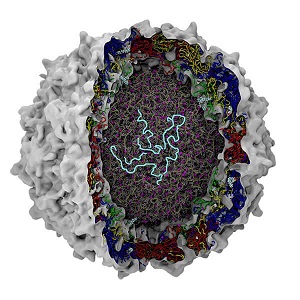
Track 7-1Oncolytic behaviour of wild-type viruses
Track 7-2Bio-engineered oncolytic virus for the treatment of cancer
Track 7-3Recently approved therapeutic agents
Cancer is a genetic disease caused by accumulation of DNA mutations and epigenetic alterations leading to unrestrained cell proliferation and neoplasm formation. The goal of oncogenomics is to identify new oncogenes or tumor suppressor genes that may provide new insights into cancer diagnosis, predicting clinical outcome of cancers and new targets for cancer therapies. The success of targeted cancer therapies such as Gleevec, Herceptin and Avastin raised the hope for oncogenomics to elucidate new targets for cancer treatment. Nanotechnology as defined by size is naturally very broad, including fields of science as diverse as surface science, organic chemistry, molecular biology, semiconductor physics, energy storage, microfabrication, molecular engineering, etc. The associated research and applications are equally diverse, ranging from extensions of conventional device physics to completely new approaches based upon molecular self-assembly, from developing new materials with dimensions on the nanoscale to direct control of matter on the atomic scale.
Track 8-1Cancer Bioinformatics
Track 8-2Cancer Nanotechnology
Track 8-4Cancer & Stem cell technologies
Pediatric Oncology is the term used to comprise all malignant conditions among neonates & children with cancer. The most common childhood cancers are, Neuroblastoma, Retinoblastoma, Wilms tumor and brain tumors, such as gliomas. Childhood cancers are very rare and may differ from adult cancers in the way they grow, spread, treated, and respond to treatment.
Track 9-2Genetics in Paediatric Oncology
Track 9-5Pediatric Oncology Nursing
Track 9-6Integrative Pediatric Oncology
Track 9-7Palliative Care in Pediatric Oncology
Track-10: Pharmaceutical oncology and Pharmacokinetic studies
A multidisciplinary way to deal with redesign has been connected in a variety of settings in clinical oncology, especially among patients with stomach and colorectal malignancy. Cancer has one of the highest mortality rates of all diseases worldwide. As a pre-treatment prior to hematopoietic progenitor cell transplantation carried out as a part of treatment for all forms of blood cancer, this drug is contributing to patients as a necessary drug that ranks alongside radiation therapy. Hepatitis B antibody was disease counteractive action antibodies upheld Drug Administration (FDA). Disease treatment immunizations were likewise considered restorative antibodies.

Track 10-1Theoretical Medicines
Track 10-2Anti-Metabolite Drugs
Track 10-5Microtubule Inhibitor
Track-11: Gynaecology, Infectious and oncology
Contaminations in the female genitalia and the extra sex organs are regularly known as Gynecologic InfectiousDiseases. A portion of the irresistible infections is Vulvovaginitis, Cervicitis, Pelvic Inflammatory Diseases, and Sexually Transmitted Diseases. Gynecologic Oncology is a specific field that arrangements with growths relating to the female genitalia and conceptive framework.
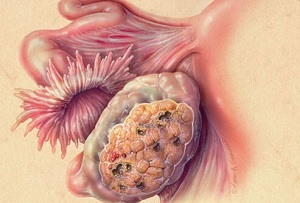
Track 11-1Oncology Rehabilitation for Cancer
Track 11-2Gynaecologic and Obstetrics Pathology
Track 11-3Polycystic ovary syndrome
Track 11-6Pelvic Inflammatory Diseases
Track 11-7Sexually Transmitted Diseases
Track-12: Key role of pathophysiology in cancer
Pathologists are among the most important members of a patient’s cancer care team. They work to diagnose and determine the stage of cancer, setting the course for what comes next in the treatment journey.Pathology is the service that handles the blood samples and the cells and tissues removed from suspicious ‘lumps and bumps’. Cancer pathology’s key role in diagnosing and treating a complex disease, it’s important to stay up to date on new technologies and breakthroughs that continue to shape the ever-evolving landscape of cancer care.

Track 12-4Anatomical Pathology
Track 12-5Pathology in cancer diagnostics
Track 12-6Cancer Cytopathology
Track-13: Oncology nursing and care
Oncology Nursing is a field including practice incorporates the jobs of direct guardian, instructor, specialist, head, and scientist. Oncology nursing care can defined as meeting the various needs of oncology patients during the time of their disease including appropriate screenings and other preventative practices, symptom management, care to retain as much normal functioning as possible, and supportive measures upon end of life. Cancer Summit 2019 will make another transformation in malignancy science and disease nursing field.

Track 13-3Management & Palliative Care
Track 13-4Assessing Physical & Emotional Status
Track-14: Radiology And Imaging current Technologies
Radiology is the medical discipline that uses medical imaging to diagnose and treat diseases within the bodies of both humans and animals. A variety of imaging techniques such as X-ray radiography, ultrasound, computed tomography (CT), nuclear medicine including positron emission tomography (PET), and magnetic resonance imaging (MRI) are used to diagnose or treat diseases. Interventional radiology is the performance of usually minimally invasive medical procedures with the guidance of imaging technologies such as those mentioned above.
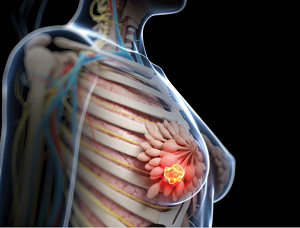
Track 14-2Cancer Histopathology
Track 14-3Cancer Differentiation
Track 14-4Computational Oncology
Track-15: Oncology Chemotherapy Advances Research studies
Cancer cells keep growing without control. Chemotherapy is drug therapy for cancer. It works by killing the cancer cells, stopping them from spreading, or slowing their growth. However, it can also harm healthy cells, which causes side effects. Cancer can be treated by surgery, chemotherapy, radiation therapy, hormonal therapy, targeted therapy and synthetic lethality.
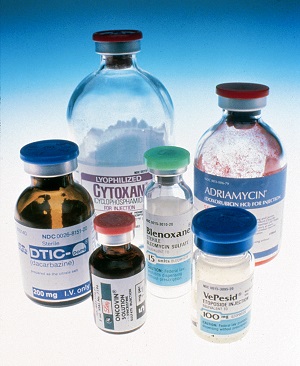
Track 15-1Cancer Radiation Therapy
Track 15-2Cancer Targeted therapy
Track 15-5Cancer Curative treatment
Track 15-6Cancer Palliative treatment
Track 15-7Limitations of Chemotherapy
Track 15-8Cancer Therapeutics, Novel and experimental approaches
Track 15-9Adverse effects of chemotherapy
Track-16: Cancer: Complementary & alternative treatments
Complementary and alternative are terms used to describe many kinds of products, practices, and systems that are not part of mainstream medicine. You may hear them used to refer to methods to help relieve symptoms and improve quality of life during cancer treatment. We call these “complementary” because they are used along with your medical treatment.

Track 16-4Homeopathic Medicines
Track 16-5Anti-Cancer Agents in Medicinal Chemistry
Track-17: Cancer: Life style Connection, nutrition & Patient Support
Many factors impact the development of cancer. Over the last 25 years, science has displayed that diet,body weight and physical activity —especially being overweight or obese—are leading risk factors for obtaining certain types of cancer. The main behavioral and environmental risk factors for cancer death in the world are related to diet and physical inactivity, use of addictive substances, sexual and reproductive health and exposure to air pollution and use of contaminated needles.
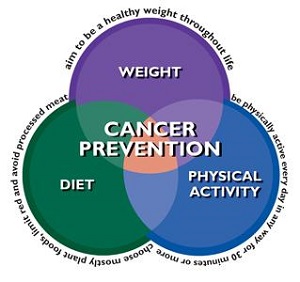
Track 17-1Investigation into Cancer and Nutrition (EPIC)
Track 17-3Population Attributable Risks
Track-18: Advances In Cancer Research And Treatment
Instruments are designed to aid in the diagnosis, monitoring or treatment of medical conditions. Several new types of equipment are used in the treatment of cancer such as:
Linear Accelerator (LINAC) – It emits radiation of highly localised (X-rays) and it is useful in the treatment of cancer. The 6 MeV linear accelerator having the capability of surface electron allows treating cancer cells even under the subcutis layer overlying the cranium. The patient can also see his activity through the connected display unit.
Gamma Camera – It is used in the detection of cancer via gamma rays. Here tracers used are introduced into the patient’s body intravenously, thus getting the image on the gamma camera as the tracer emits gamma rays which are detected by the gamma camera.
Radiography and Ultrasound – It is a non-invasive way of getting the image of the internal organs by ultrasound. It is a useful method for cancer patients for examining the abdomen for any enlargement of the lymph or masses.
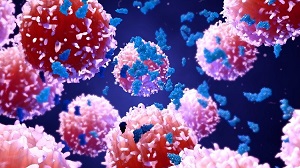
Track 18-1Targeting the DNA Damage Response to Generate New Cancer Therapies
Track 18-2Preclinical & Clinical Research
Track 18-3Early Detection Research
Track-19: Overall Future Outcomes and Change in Oncology Practice
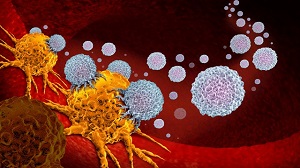
Leukemia, Lymphoma, Germ cell tumors and early stage solid tumors which were once incurable have become curable malignancies now. Immunotherapies have already proven efficient in leukemia, bladder cancer and various skin cancer. For the future, research is promising in the field of physical oncology. Survival of cancer has significantly improved over the past years due to improved screening, diagnostic methods and treatment options with targeted therapy. Large multi-centric Phase III randomised controlled clinical trials by the National Surgical Adjuvant Breast & Bowel Project (NSABP), Medical Research Council (MRC), the European Organisation for Research and Treatment of Cancer (EORTC) and National Cancer Institute (NCI) have contributed significantly to the improvement in survival.
MARKET ANALYSIS
According to the journal published by Biomed Central, rotavirus infection the leading cause of severe dehydrating diarrhea among children worldwide. Every year rotavirus infection causes an estimated 111 million diarrhea episodes leading to 2 million hospitalization cases and 400,000 deaths of children under 5 years. Out of all these 82% occur in children in the poorest countries of Asia and Africa. As per Centers for Disease Control and Prevention (CDC), chronic HBV affected almost 1.4 million of the US population in 2011 and acting as major public health challenge. In past couple of years outbreaks for different infections have deteriorated the situation. All these reports direct towards the increasing need for immunological diagnosis and treatment for infections across the world. Therefore the market for this infection oncology may grow with significant rate in near future. On the other hand high cost involved and limited reach of this technology may hinder the growth of the market.
However the growth of the market may be significant in emerging economies in Asia and Africa considering high incidence and prevalence rate for infections. This market can also be segmented according various categories of infections such as hepatitis viruses, retroviruses and other infections. The market has different classes of products used such as reagents, diagnostic kits, instruments and others.
Precision Medicine Market size was over USD 39 billion in 2015, and is anticipated to grow at 10.5% CAGR from 2016 to 2023.
Europe precision medicine market size, by application, 2013 - 2023 (USD Million)
Statistics of Physicians, Researchers and Academicians working on Molecular Medicine and Oncology section.
- Academia 35%
- Researchers 35%
- Physicians 25%
- Others 5%
Oncology Drug Market: Overview
Development of some new drugs with success rate is expected to offer the good opportunity for oncology drug market. Wide-ranging scope of Immuno-oncology agents in different cancer treatments would provide the maximum share to oncology drug market in the forecast period. Pharmaceutical companies and R&D are showing increased interest in this field and is expected to offer better potential for oncology drug market. Companies involved in partnership and R&D for efficient technologies is some of the latest trends that have been observed in oncology drug market. Currently, most of the oncology drugs are in clinical trial and are expected to rise the oncology market after clearance or success of these products from clinical trials.
Growth rate of Oncology research:
A new report from business intelligence provider GBI Research - Global Oncology Market to 2022 - states that the global oncology treatment market is set to expand from the $61.5 billion in 2015 to an estimated $74.2 billion in 2022, despite the imminent expiry of a host of oncology treatments.
Oncology Drug Market: Key Market Participants
Currently various established companies in diagnostic and healthcare segment catering varied range of products such as reagents, test kits and instruments in this market out of which companies such as F. Hoffmann-La Roche Ltd., Abbott Laboratories, Shanghai Kehua Bio-engineering Co., Ltd, Trans Asia Bio-Medicals Ltd, Span Diagnostics Ltd, Thermo Fisher Scientific Inc., Bio-Rad Laboratories, Inc. are leading contributors in reagents and test kits, on the other hand Siemens Healthcare and PerkinElmer, Inc. are major companies in Instruments segment.
This research report analyzes this market on the basis of its market segments, major geographies, and current market trends. Geographies analyzed under this research report include
LEARN MORE
List of major Universities related to Oncology in USA:
List of major Universities related to Oncology in Europe:
List of major Universities related to Oncology in Asia:
List of major Societies related to Oncology in USA:
List of major Societies related to Oncology in Europe:
List of major Societies related to Oncology in Asia:
List of major Journals related to Oncology in USA:
List of major Journals related to Cancer Sciences in Europe:
List of major Journals related to Oncology in Asia:
